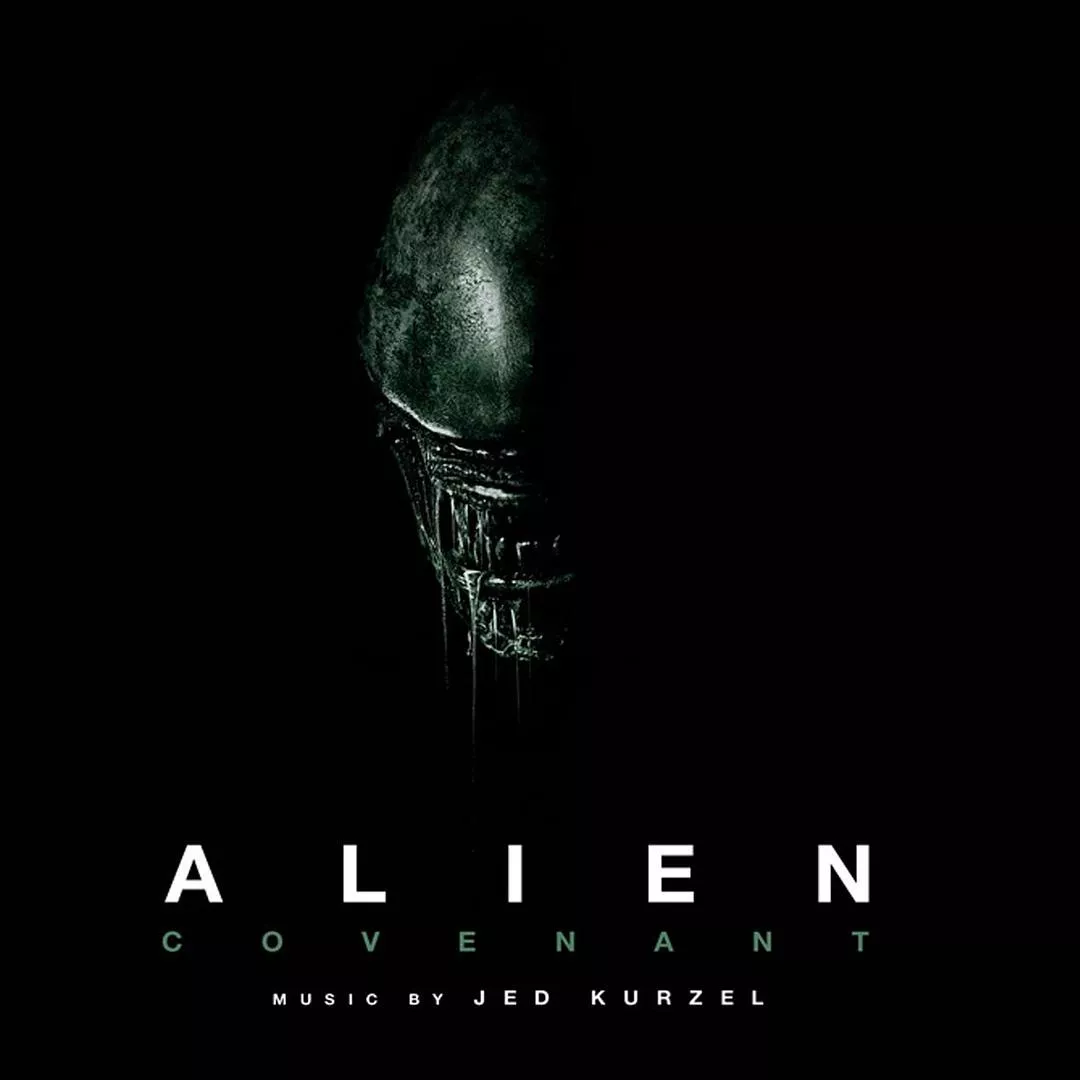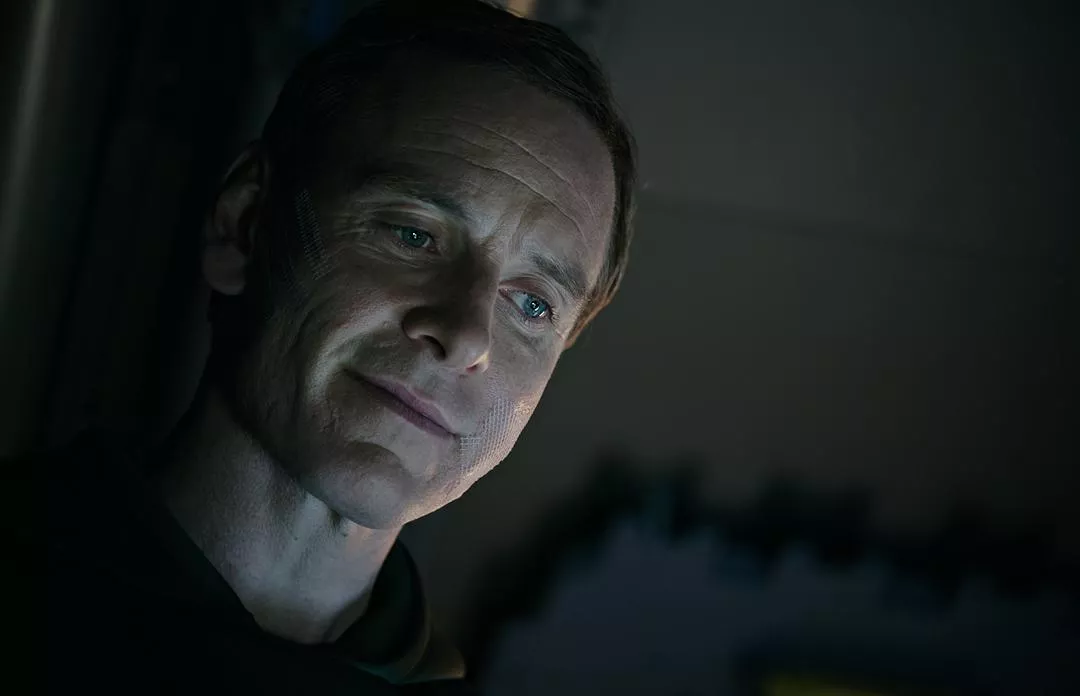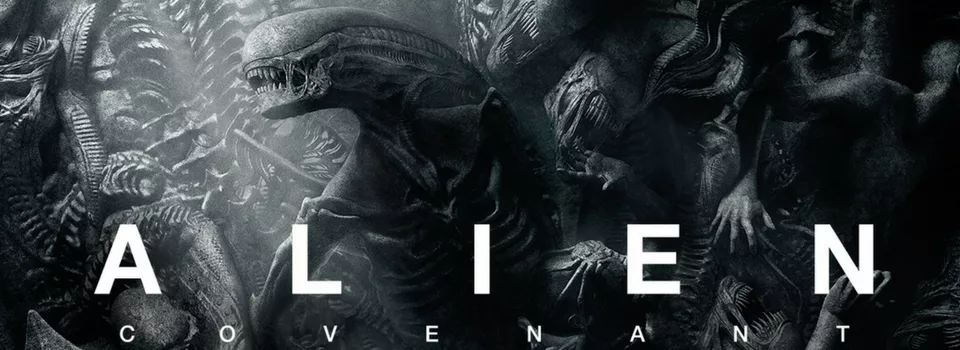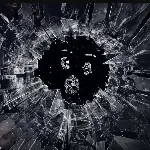Ridley Scott's signature ensures the Alien series maintains its distinctive dark and bloody style. "Alien: Covenant" elevates the bloody horror to an R18 level. Every detail is open to exploration and reminiscence, and Ridley Scott, as always, lays various traps as clues, allowing viewers to constantly imagine more profound stories in the Alien universe.

The matured appearance of the Alien truly facing off against humans is a feast for the eyes. The atmosphere of terror, helpless cries, shaky camera shots, and brutal scenes keep viewers breathless and glued to their seats. The direction of the film's plot makes you believe that anyone could die at any moment. Moreover, "Alien: Covenant" essentially clarifies the true origin of the Alien.
The setting of "Alien: Covenant" continues the tone set by the father of Alien, H. R. Giger. It perfectly blends horror, art, and religious and sexual implications. Like "Prometheus," "Alien: Covenant" writes many implicit descriptions within the film's limited time. For instance, there's a scene where Michael Fassbender's android character plays the flute, which adds depth beyond the typical Hollywood mainstream film, where plots are usually simplified for easy understanding, much like best-selling novels, with minimal subtext.

The ending of "Alien: Covenant" naturally includes a surprising twist to set the stage for the sequel. Initially, there were plans for a trilogy. However, the latest reports indicate that the next installment in the Alien prequel series will be a prequel to "Alien: Covenant."
As for why, it's due to the need for commercial returns and engagement. If the events immediately after "Prometheus," which premiered this time, were depicted, audiences would only anticipate the following "Alien: Covenant." By releasing "Alien: Covenant" first, the production company anticipates what happened before and after "Alien: Covenant." This undoubtedly enriches the Alien series, but audiences have to keep waiting.
The story of "Alien: Covenant" closely follows the events ten years after the previous installment, "Prometheus." So, to truly understand "Alien: Covenant," it's best to watch "Prometheus" first. To see the entire Alien series, you should start with the 1979 film "Alien," followed by three sequels. The first two, "Alien" and "Aliens," are the most classic.
Director Ridley Scott and Alien Godfather H. R. Giger
Ridley Scott is an individualist. From the outset, when creating Alien, he wanted something different from other sci-fi and horror films. Scott received attention and divided opinions from "Alien" right from the start, much like "2001: A Space Odyssey" did, garnering significant attention and polarized reviews. However, over time, "Alien" became a classic, with its themes of religion, philosophy, morality, and even values honed by time.
Ridley Scott's "Alien," released in 1979, garnered significant attention, and winning the Academy Award for Best Visual Effects in its sci-fi horror genre was no small feat. When discussing sequels, Ridley Scott initially thought he could continue nurturing his Alien franchise. However, James Cameron unexpectedly emerged as a formidable competitor.
When James Cameron directed "The Terminator," he rose to fame overnight! He was recognized by film production companies and then directed "Aliens." James Cameron was a guarantee of quality, and "Aliens" was equally successful! "Alien 3" and "Alien: Resurrection," directed by heavyweight directors in film history, David Fincher and Jean-Pierre Jeunet, respectively, maintained decent standards but couldn't quite reach the heights of "Alien" and "Aliens." After all, "Alien 3" was David Fincher's debut, limited in skill and experience. And "Alien: Resurrection" felt like a script that had run out of steam.
Ridley Scott nurtured Alien but only directed the first installment, naturally leaving him yearning. So, he wanted to return to the beginning to explore the story behind the spacecraft from the first film. It's akin to what we see in the prequel "Prometheus," a result of discussions with James Cameron, who was also very interested.

However, when he heard that the film studio didn't want to make a prequel and instead wanted to incorporate new characters, aiming first to shoot the "Alien vs. Predator" series, James Cameron went on to direct "Avatar," leaving Ridley Scott lonely. Ridley Scott's version of the Alien prequel was abandoned, leading to a less well-received series, "Alien vs. Predator," which further confused the Alien universe.
The time they were proved to be the best evidence. The film production company realized their initial direction needed to be corrected and reapproached Ridley Scott, promising him the directorship of a trilogy of Alien prequels, with no directors changing. So Ridley Scott began to revitalize the Alien storyline. Films like "Prometheus" and "Alien: Covenant" emerged, maintaining high quality, and the universe of Alien became more complete and intriguing.
Another figure who made a significant contribution to Alien was its godfather, H. R. Giger. He was a renowned Swiss surrealist painter, sculptor, and designer. The inspiration for Alien came from his initial work, "Necronom IV." His pieces were laden with sexual implications and a love for biomechanics, making him a unique presence in the art world. Beyond Alien, H. R. Giger's influence extended to games, home, and product design and inspired many dark artists that followed.
In "Alien: Covenant," the setting, the design of the Alien characters, and the artistry faithfully echoed H. R. Giger's style. If the plot were rated 80%, the art direction would get a perfect score! Especially notable was the rendering of the atmosphere, with rain, fog, darkness, caves, and music, all imbued with H. R. Giger's intense style.








Share your thoughts!
Be the first to start the conversation.